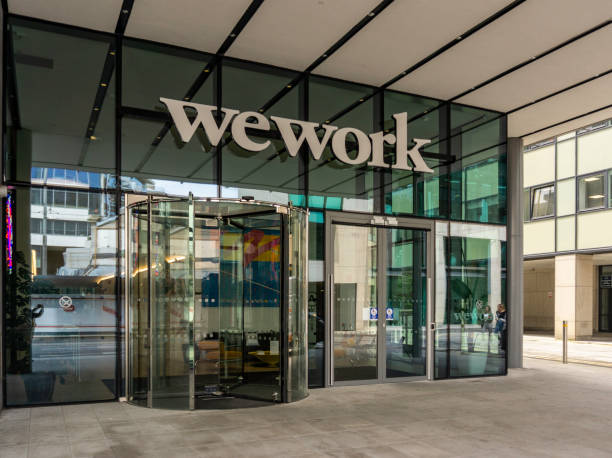On November 6, 2023, WeWork Inc., and its numerous business
entities/affiliates voluntarily initiated Chapter 11 proceedings in the US
Bankruptcy Court for the District of New Jersey. Simultaneously, WeWork
announced its intention to commence reorganization proceedings in Canada as
well. Notably, WeWork clarified that its properties outside the United States
and Canada are excluded from the ongoing reorganization – which is interesting
considering the North American filings.

WeWork has strategically entered into a Restructuring Support Agreement with noteholders representing over 90% of its secured notes. This agreement aims to alleviate WeWork’s funded debt and streamline the restructuring process but is still fraught with speculation. The company boldly asserted confidence in
maintaining sufficient liquidity to conduct the reorganization proceedings while continuing normal business operations – even considering the current state of the commercial real estate market.
Immediate Consequences of this Filing – Automatic Stay is Powerful
The Chapter 11 filing by WeWork holds the potential to significantly impact
the commercial real estate industry, prompting various considerations for
hundreds of commercial landlords and commercial property managers. Immediate
consequences involve the imposition of an automatic stay, a statutory
injunction prohibiting creditors, including landlords and commercial property
managers, from pursuing litigation, lien enforcement, or collection actions
against the debtor and its properties.
Landlords must promptly ascertain if any of their tenants or contractual
counterparts are implicated in WeWork’s Chapter 11 filing, as the automatic
stay precludes actions such as collecting overdue rent, initiating, or
continuing eviction proceedings, terminating leases, or applying security
deposits. However, importantly certain contractual and procedural actions, like
drawing upon a letter of credit or enforcing a guaranty from a non-filing
entity, may still be permissible – but everyone should be cautious as a
violation of the automatic stay is punitive.

Given the enormous number of entities involved in WeWork’s chapter 11 filing, landlords and commercial property managers should immediately confirm whether any of their tenants or other contractual counterparties are part of this Chapter 11 filing. If they are, landlords and commercial property managers
should be aware of the implications of violating the automatic stay.
Importantly, the automatic stay typically will not prevent landlords or
commercial property managers with that authority from making a draw upon a
letter of credit (assuming the letter of credit was applicable and sufficient),
or enforcing a guaranty against a guarantor that is not part of the Chapter 11
filing – which could present its own set of issues.

Landlords and Commercial Property Managers Beware
WeWork’s chapter 11 stands to present an array of issues, but here are a few
that landlords and commercial property managers need to be aware of
immediately:
Unexpired Leases: WeWork, under its business judgment, can
assume or reject unexpired commercial real estate leases because of the
protection it is afforded under bankruptcy, regardless of lease provisions.
This decision is subject to curing monetary defaults and ensuring adequate
assurance of future performance of lease obligations.
Stub Rent: Landlords and commercial property managers
should be aware that a debtor may not be obligated to promptly pay pro-rated
rent for the period between the Chapter 11 filing and the next rent payment
date.
Letters of Credit: Landlords and commercial property
managers can typically draw upon letters of credit issued by non-debtor
entities without seeking relief from the automatic stay, even after a
bankruptcy filing.
Priority of Landlord’s Claims: Unpaid rent and
pre-bankruptcy obligations are unsecured claims, but post-filing obligations
may be afforded administrative expense priority.
Caps on Lease Termination Claims: Chapter 11 imposes
statutory caps on landlord claims resulting from lease termination, with
specific calculations and considerations to be determined by the court.
Landlords and commercial property managers tasked with lease
responsibilities are advised to carefully review lease documents, understand
contractual rights, and prepare for potential challenges arising from WeWork’s
Chapter 11 filing. The evolving situation demands a cursory but thorough
understanding of bankruptcy procedures as applied to commercial leases –
landlord statutory remedies, potential relief from forfeiture claims, and the
complex dynamics of US Bankruptcy proceedings. This case should put all
commercial landlords and commercial property managers on notice and on the edge
of their seat waiting for the numerous outcomes and issue resolutions the
WeWork bankruptcy proceedings will be produced.
As this unfolds, landlords and commercial property managers must decide on
the best course of action, considering practicalities such as fit-out
improvement ownership, obstacles to reletting, and opportunities for financial
recovery through the insolvency process. Challenges may arise swiftly,
necessitating prompt decisions on multi-jurisdictional court actions and
potentially challenging ongoing processes. The evolving landscape also raises
questions about the rights of landlords associated with WeWork’s intention to
collaborate with some landlords while exiting unprofitable locations,
reminiscent of negotiations with distressed tenants in insolvency proceedings.
Looking for a professional, dependable, and law-abiding property management partner, Esquire Property Management Group stands as an example. Therefore, landlords and commercial property owners are encouraged to prioritize the quality of services, which is significant when selecting partners with ethical and legal standards.
David currently is the broker/owner of several real estate related businesses which manage and maintain 300+ client properties on the San Francisco Peninsula.
Trust, transparency, and performance guarantees are the foundation of these businesses. David challenges anyone to find a PM professional that offers services similar - extensive education, customer service, and performance guarantees.
David also provides consulting for his clients on property development feasibility, construction, and complex real estate transactions.
David has authored a published law review article, three real estate books, and over 150+ real estate blog articles.
- “Wildfires, Insurance & Mortgages: Will Your Home Survive the Financial Aftermath?” - March 3, 2025
- What’s Driving California’s Commercial Real Estate Shakeup? - February 27, 2025
- Critical Issues in Triple Net Leases Investors Should Know - February 14, 2025

